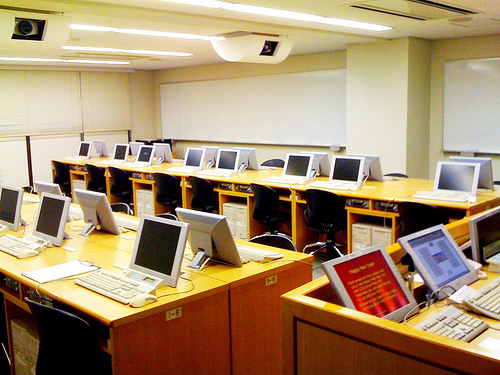Minimizing The Need For Computer Repairs

According to the folks over at Geeks Mobile USA, the overwhelming majority of reported computer problems across the US today don’t in fact concern machines that are ‘broken’ as such, or even in any way damaged. It’s very rare to hear of an instance where a person’s PC or laptop has more or less exploded and completely died right before their eyes.

Instead, the vast majority of computer problems reported coast to coast these days are more about performance than actual breakages. Whether over the course of time or seemingly overnight, millions notice that their computers have slowed to a painful pace the like of which is heading toward calculator territory. Everything works to some extent or another, but even getting the thing to load up in the first place becomes a hair-tearing process of extreme annoyance. The amount of money spent every single month on these kinds of computer ‘repairs’ is too extraordinary to put a figure to, but suffice to say it’s in the tens of millions.
And here’s there real kicker – about 90% of them are totally unnecessary as they could have been easily avoided or tackled by their respective owners.
So with in mind, here’s a list of crucial tips from the folks at Geeks Mobile USA on the subject of keeping your computer as healthy as possible and minimizing the need for costly repairs:
Kicking off with a hardware tip, your PC works better when its temperature is kept down and can potentially fry itself if it gets too hot. So, if you’re no already in the habit it’s very important that you start making sure the air vents and intakes are always kept both clear AND clean. Remove dust, ensure air can circulate and try to work in an area that isn’t too hot – overheating can cause thousands of common computer complaints and there’s really no need for any.
Every month, go through your computer with a fine-comb and assess what you need and what you don’t and what you can transfer. It’s a simple formula to follow – the less there is on your hard drive, the faster your computer will run and the healthier it will remain. Conversely, more clutter puts more strain on the processor and memory, which increases the chances of a problem developing. If you haven’t used it for a month, chances are you never will so either delete it or ship it off onto an external drive, DVD, USB stick or anything else.
Always create system restore points on a frequent basis, just in case things come a cropper. Technically speaking, if you have a recent system restore point and all you most important files backed up, you’re about 99% immune to the vast majority of common PC ills that dog the land.
Over time, the files and programs you use will end up being scattered all over your hard drive. As such, it has to leap from one end to another constantly to keep up, which not only slows down performance but also puts an additional strain on the hardware and can lead to problems. As such, make sure you occasionally used the defragmentation tool that comes with your OS, which can take a while but works wonders.
In the same vein, there are also plenty of in-built and free web-based disk checking tools you can use to scan your hard drives, isolate any problems and in most cases fix them automatically.
Last up, you need to be on the constant lookout for spyware as these demons of the modern age can slow your computer down to a crawl and in some instances stop the whole thing from working. Use free software from the web to locate and get rid of any spyware, while at the same time setting up a decent enough spyware blocker to prevent it coming back.
License: Creative Commons
image source
Author Bio
This Guest post was written by Ilya Elbert the nationwide account executive of AllIT, a full service Information Technology solutions company that caters to the whole of continental United States. He has over 10 years of solid experience in the IT industry. Follow him on Twitter to receive IT tips, updates and news.
